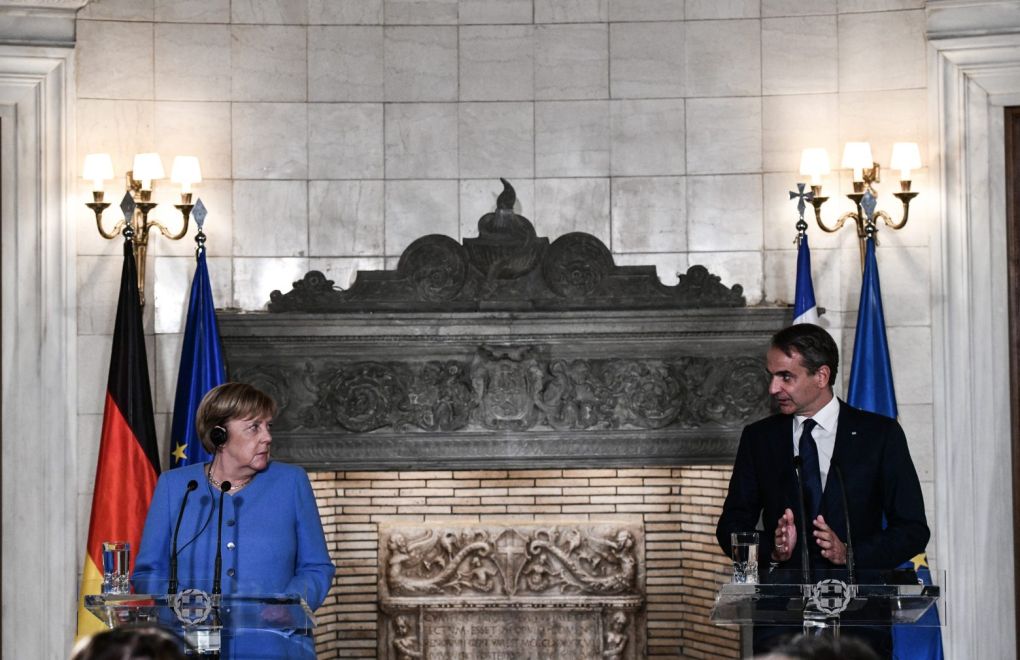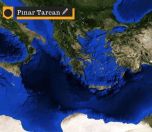* Photo: remonews
Click to read the article in Turkish
Angela Merkel, the Chancellor of Germany, paid a farewell visit to Athens, the capital city of Greece, today (October 29) and met with Prime Minister of Greece Kyriakos Mitsotakis as part of her visit.
As reported by Deutsche Welle (DW), Merkel had talks on a series of issues such as the energy policy, the COVID-19 pandemic and immigration as well as Greece's tense relations with its neighboring Turkey over territorial disputes and drilling rights in the eastern Mediterranean.
According to Greece-based Ekathimerini, Prime Minister Kyriakos Mitsotakis urged the European Union (EU) "to take a tougher line on Turkey."
"Western moderation often seems to encourage Turkey's arbitrary behavior," Mitsotakis said during his joint press conference with Merkel: "It's time for European principles to translate into European practice."
Prime Minister Mitsotakis indicated that "Greece wants to have good relations with its neighbors on the basis of international law," but he also underlined that Greece "will not tolerate threats to its rights."
"My door is always open, but this dialogue presupposes a reduction in unnecessary tensions," Mitsotakis reportedly said after the meeting, adding:
"Greece has signed agreements defining exclusive economic zones with neighbouring countries like Italy, Egypt. There is no reason why we cannot do it with Turkey, provided that the tensions are toned down, and realise that such an approach would be eventually beneficial to both countries."
He indicated that they offered Turkey two options: "Cooperation on the condition that international law is recognized or European sanctions on Turkey in the event that it continues acting in the same way."
In her address, Germany's Merkel said that "all countries should respect international law and the resolutions of the United Nations (UN)", adding that "reaching solutions through dialogue is significant but hard."
She also agreed with Mitsotakis that "Greece's problems with Turkey are also a problem for Europe, as exemplified by the migration issue," adding that "a full consensus on all issues is not always possible." (RT/SD)






-132.jpg)

